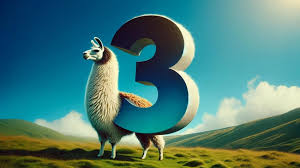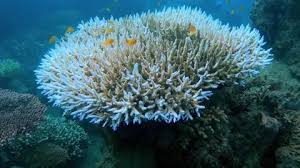Today’s Current Affairs: 22nd April 2024 for UPSC IAS exams, State PSC exams, SSC CGL, State SSC, RRB, Railways, Banking Exam & IBPS, etc
Table of Contents
Sweden Joined Artemis Accords:

Sweden joined the Artemis Accords, becoming the 38th country to do so. These non-binding arrangements aim to establish norms for outer space activities.
- The Artemis Accords are non-binding principles based on the Outer Space Treaty (OST) of 1967, aiming to guide civil space exploration in the 21st century.
- They are a US-led international partnership(introduced in 2020 by NASA) signed by 38 countries till now, including India (signed in 2023), Japan, Australia, the UK, France, and Canada – on planetary exploration and research.
- They are a set of 13 principles, closely linked to the 2018 US Artemis Program, which aims to return astronauts to the lunar surface, build a space camp there, and carry out deep space exploration.
World Craft City (WCC) Title:

Srinagar is being considered for the prestigious World Craft City (WCC) title by the World Crafts Council International (WCCI).
- The World Craft City (WCC) initiative was launched in 2014 by the World Crafts Council International (WCCI), a Kuwait-based organization.
- It acknowledges the contributions of local authorities, craftspeople, and communities to cultural, economic, and social development worldwide.
- WCC aims to establish a network of craft cities globally, promoting the principles of the creative economy and preserving traditional crafts.
Green Credit Program:

The Ministry of Environment Forest and Climate Change(MoEFCC) has clarified that under the Green Credit Program(GCP) primacy must be accorded to restoring ecosystems over merely tree planting.
- Green Credit Program (GCP) is an innovative market-based mechanism designed to incentivize voluntary environmental actions across diverse sectors, by various stakeholders like individuals, communities, private sector industries, and companies.
- It is designed to foster a sustainable lifestyle and environmental conservation as part of the ‘LiFE’ initiative announced by the Prime Minister in United Nations Climate Change Conference of the Parties (COP26).
- The Green Credit program encompasses eight key types of activities aimed at enhancing environmental sustainability:
- Planting trees to increase green cover and combat deforestation.
- Implementing strategies to efficiently manage and conserve water resources.
- Promoting eco-friendly and sustainable agricultural practices.
- Implementing effective waste management systems to reduce environmental pollution.
- Initiatives aimed at reducing air pollution and improving air quality.
- Protecting and restoring mangrove ecosystems for ecological balance.
- The operational framework of the Green Credit Programme involves a process where both individuals and corporations are given the opportunity to contribute financially to the restoration efforts of forests deemed ‘degraded’.
- This is facilitated through applications to the Indian Council of Forestry Research and Education (ICFRE), an independent entity under the Environment Ministry.
- The ICFRE is responsible for overseeing the financial contributions directed towards forest restoration, which is then executed by the respective State forest departments.
- The activities will then be subject to verification by a designated agency. Based on the agency’s report, the administrator will grant the applicant a certificate of Green Credit.
- The calculation of Green Credit is determined by factors such as resource requirements, scale, scope, size, and other relevant parameters necessary to achieve the desired environmental outcomes.
- A critical component of the program is the establishment of a Green Credit Registry, which will help track and manage earned credits.
- The administrator will create and maintain a trading platform, enabling the trading of Green Credits on a domestic market.
Advance Pricing Agreement : CBDT

The Central Board of Direct Taxes (CBDT) has achieved a remarkable milestone by signing 125 Advance Pricing Agreements (APAs) during the fiscal year 2023-24.
- This surge in APA signings underscores the growing importance of transfer pricing regulations and the efforts to provide certainty to taxpayers.
- In an additional development, India and Mauritius have amended their Double Taxation Avoidance Agreement (DTAA) to curb tax evasion and ensure fair taxation practices,
- Advance Pricing Agreement is a formal arrangement between a taxpayer and a tax authority on transfer prices.
- APAs allow businesses to reduce the risk of their transaction prices being challenged by tax authorities.
- The APA programme has significantly contributed to India’s mission of promoting ease of doing business, especially for Multinational Enterprises (MNEs) with a large number of cross-border transactions within their group entities.
- Types of APAs:
- Unilateral APAs: Limit risks for transactions between domestic entities. No guarantee of avoiding double taxation for transactions with foreign entities.
- Bilateral APAs: Limit risks for transactions between a domestic entity and a foreign entity. Eliminate the risk of double taxation.
- Multilateral arrangements: They mitigate risks for transactions between related entities in 3 or more states, serving as a protective instrument for complex transactions and ensuring safety for both parties, although the proceedings take longer.
Euvichol-S : New Oral Vaccine For Cholera

The World Health Organization (WHO) has prequalified a new oral vaccine for Cholera called Euvichol-S.
- Euvichol-S is the inactivated oral vaccine to treat It is the third product of the same family of vaccines which are there for cholera in WHO prequalification list.
- It is a simplified formulation of the oral cholera vaccine (OCV) Euvichol-Plus.
- Other inactivated oral cholera vaccines are Euvichol and Euvichol-Plus.
Cholera:
- It is an acute diarrhoeal disease that is caused by the bacterium Vibrio cholerae.
- It remains a global threat to public health and an indicator of inequity and lack of social development.
- It is a virulent disease that can cause severe acute watery diarrhoea.,Profuse watery diarrhoea, vomiting, leg cramps etc.
- It can spread rapidly in areas with inadequate sewage and drinking water treatment.
Llama 3 : Meta

Meta introduced its most capable Large Language Model (LLM), the Meta Llama 3.
- Llama 3 or Large Language Model Meta AI is a family of LLMs introduced by Meta AI in February 2023.
- It is claimed to be the most sophisticated model with significant progress in terms of performance and AI capabilities.
- It is based on the Llama 2 architecture which has been released in two sizes, 8B and 70B parameters.
- Both sizes come with a base model and an instruction-tuned version that has been designed to augment performance in specific tasks.
- The instruction-tuned version is meant for powering AI chatbots that are meant to hold conversations with users.
- It supports context lengths of 8,000 tokens.
- This allows for more interactions, and complex input handling compared to Llama 2 or 1.
- It can be used on Facebook, Instagram, WhatsApp, Messenger, and the web.
- It is readily available for developers as Meta has integrated the LLM into the Hugging Face ecosystem.
- At present, Meta AI is available in English across the US on WhatsApp.
Global Financial Stability Report : IMF

The International Monetary Fund (IMF) released the latest global financial stability report.
Highlights of the report:
- It has warned about the risks to the global financial system from persistent high inflation, rising lending in the unregulated credit market, and increasing cyber-attacks on financial institutions.
- Geopolitical risks such as the ongoing war in West Asia and Ukraine could affect aggregate supply and lead to higher prices.
- In 2023, India was the second-largest recipient of foreign capital after the U.S. But things could change quickly if western central banks signal that they could keep interest rates high for a long time.
- In its report also noted that the growing unregulated private credit market, in which non-bank financial institutions lend to corporate borrowers, is a growing concern as troubles in the market might affect the broader financial system in the future.
- The borrowers in the private credit market may not be financially sound and noted that many of them do not have current earnings that exceed even their interest costs.
Global Mass Coral Bleaching:

The US National Oceanic and Atmospheric Administration (NOAA) said the fourth global mass coral bleaching event has been triggered by extraordinary ocean temperatures.
- Corals are essentially animals, which are sessile, meaning they permanently attach themselves to the ocean floor.
- They share a symbiotic relationship with single-celled algae called zooxanthellae.
- The algae provides the coral with food and nutrients, which they make through photosynthesis, using the sun’s light.
- They use their tiny tentacle-like hands to catch food from the water and sweep into their mouth.
- Each individual coral animal is known as a polyp and it lives in groups of hundreds to thousands of genetically identical polyps that form a ‘colony’.
- Corals are largely classified as either hard coral or soft coral.
- It is the hard corals that are the architects of coral reefs — complex three-dimensional structures built up over thousands of years.
- Hard corals have stony skeletons made out of limestone that are produced by coral polyps.
- When polyps die, their skeletons are left behind and used as foundations for new polyps.
- Coral reefs, also referred to as “rainforests of the sea”, have existed on the Earth for nearly 450 million years.
- Coral reefs have a crucial role in marine ecosystems.
- Thousands of marine species can be found living on one reef.
- Coral Bleaching happens when corals experience stress in their environment due to changes in temperature, pollution or high levels of ocean acidity.
- Under stressed conditions, the zooxanthellae or food-producing algae living inside coral polyps start producing reactive oxygen species, which are not beneficial to the corals.
Soil Acidification : Report

Recent report highlighted that over 30 per cent of cultivable land in India is said to carry acidic soil which is impacting plant growth.
- Soil Acidification is a process where the soil pH decreases over time.
- This process is accelerated by agricultural production and can affect both the surface soil and subsoil.
- Acidic soils in India are widespread in the humid southwestern, northeastern and Himalayan regions.
- Some contributing factors to soil acidification include:
- the application of high levels of ammonium-based nitrogen fertilisers to naturally acidic soils
- leaching of nitrate nitrogen, originally applied as ammonium-based fertilizers
- harvesting plant materials (plant material is alkaline so when it is removed the soil is more acidic than if the plant material had been returned to the soil).
- Acidification creates an environment ripe for depletion of soil inorganic carbon, which is important for soil health, ecosystem services
- Acidic soils affect crop growth and productivity by reducing the availability of plant nutrients. It also predisposes plants to other biotic and abiotic stress factors.
Longevity India Initiative : IISc

The Indian Institute of Science (IISc) launched the Longevity India Initiative.
- Longevity India Initiative is a project focused on efforts to extend human ‘healthspan’ and tackle ageing-related challenges.
- It has also started a large-scale clinical study that will involve researchers from multiple IISc departments, clinicians, industry, philanthropists and civil society.
- It seeks to enhance the understanding of ageing through both fundamental and applied research, and to develop solutions that can improve quality of life.
- It will leverage advanced research to develop interventions that can help manage age-related diseases more effectively, with an emphasis on promoting healthy ageing across India.
- It has received initial grant funding support from Prashanth Prakash, Founding Partner, Accel India.
- India’s elderly population projected to surge to 347 million by 2050, it is imperative that there is a need to leverage technology to provide accessible geriatric healthcare, nurture the silver economy and invest in digital systems that support ageing populations
Bitcoin Halving Event:

The cryptocurrency community is gearing up for the upcoming Bitcoin halving event, which is likely to be held this weekend.
- The halving refers to an alteration in the foundational blockchain technology of Bitcoin, aimed at decreasing the pace of generating new bitcoins.
- Since its creation by the pseudonymous figure Satoshi Nakamoto, Bitcoin has been structured to possess a finite supply of 21 million tokens.
- The process of halving will persist until 2041, by which time all Bitcoins will have been mined.
- Blockchain technology involves creating records of information – called ‘blocks’ – which are added to the chain in a process called ‘mining’.
- Miners use computing power to solve complex mathematical puzzles to build the blockchain and earn rewards in the form of new bitcoin.
- The blockchain is designed so that a halving occurs every time 210,000 blocks are added to the chain, roughly every four years.
- At the halving, the amount of bitcoin available as rewards for miners is cut in half.
- This makes mining less profitable and slows the production of new bitcoins.




